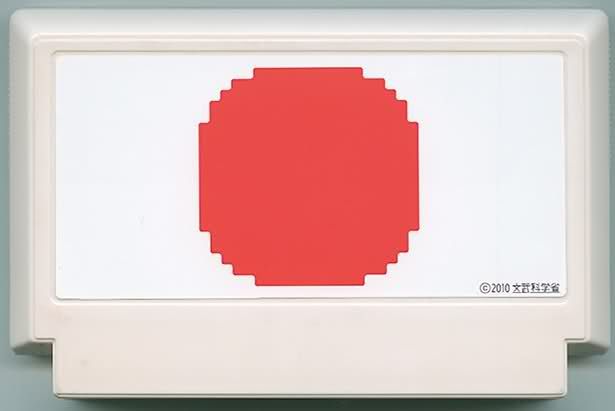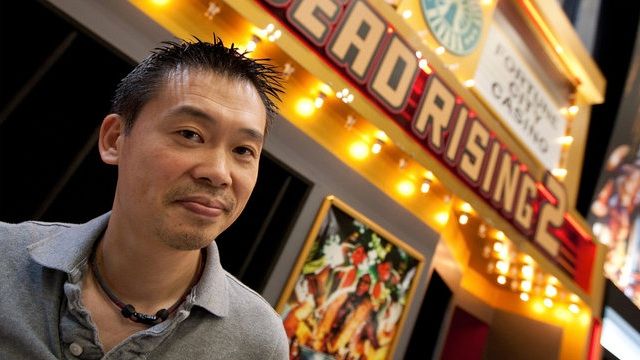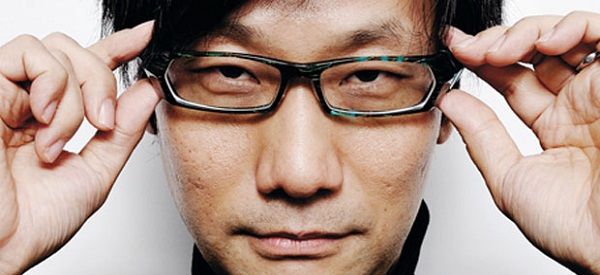For the last twelve years or so there's been this paradigm shift in video game development and the philosophy that surrounds it. Much of it stems from the newer game creators that are popping up from literally every where. Every single day we're seeing new creative hot zones spring up across the globe, with North America and Western Europe seeing the biggest influx of home grown talent. It's safe to say: we're at the tail end of gaming's first renaissance.
In that span of time the "west" has been at an all time high, while the "east" -- well the "far east" -- hasn't earned nearly as much fanfare. The Miyamotos, Inafunes, and Sakaguchis that I grew up with have quietly been replaced by the Blezinskis, Howards, Notches and Hudsons. Consumers have voted with their wallets and have decided the kinds of games, characters, and stories that they want to experience.
When this change began, Japanese developers decided to stick to their guns and continue to create games the only way that they knew how, and for a while were still seeing moderate success; especially with bigger and well known IPs. Eventually though, the sales numbers began to dip and a Japanese developed title that would have killed it at retail a decade prior was now struggling to find a publisher for a western release. And that pretty much describes the point we're currently at now.
I'm not going to try and figure out the smoking gun that brought upon this change because there are just too many variables to consider. Instead, let's go over how Japanese developers haven't really tried to adjust to the changes and in the process have lost a lot of what made them unique in the first place. How the downfall of the Japanese games industry is a product of their own creation.
"To win... you must first acknowledge your loss and prepare to start over"
At the 2012 Game Developers Conference, just as he did the year prior and despite the certain backlash he will face in his native Japan, Mega Man co-creator Keiji Inafune has warned that "time is running out." He believes Japanese developers rely too heavily on the nostalgia factor from "blasts from the past." Instead of being innovative, some of them are easily creating the kinds of games that they assume people want to buy rather than something unique and compelling that will be able to sell itself on a global level.
Some Japanese developers, through their choice of projects and IPs, may indicate that they want to step out and onto a more global stage of game development, yet their actions seem to show otherwise. In a December 2011 interview with Gamasutra, Yakuza creator and SEGA COO Toshihiro Nagoshi spoke about Binary Domain and it's western influence. When asked about it's target audience he responded by saying "My ultimate goals are worldwide... I like the idea of breaking out of Japan into the rest of the world -- maybe it's just an image in my mind, but that's how I'd like to go. That's part of why the game is set in Japan, after all."
What's ironic about Nagoshi-san's statement, is that the complaints that I had during my review of Binary Domain was that it's Japanese influence was arguably a bit too prevalent for a traditional western shooter fan's liking. And here we are looking at an interview from weeks prior where he's talking about how he'd prefer to have success in Japan, and have it branch out from there. That train of thought is a prime example of what Inafune is talking about.
"It doesn't matter where they are from, working with highly motivated individuals is the only way to move forward"
If you want to take a look at someone who has done things right despite the decline, look no further than Metal Gear series creator Hideo Kojima. While other developers were trying to push more of the same from Japan, Kojima-san and his production studio recognized the industry's flaws and acted on it. They promoted American-born Ryan Payton to act as assistant producer for the biggest title in the Metal Gear saga thus far.
Ryan would provide his own insight and influence to ensure that the game had a very high level of western appeal. The payoff was Metal Gear Solid 4 becoming a critically acclaimed final product, one that -- four years later -- still ranks among the highest scoring titles in the PlayStation 3 library. The difference here is that pride (some may call it stubbornness) was set aside in favor to create a great product. It's something that that entire Japanese game industry should make note of if they plan on bouncing back.
"Times they are a-changin'..."
- Bob Dylan
Survival of the fittest doesn't just apply to the animal kingdom, it's just as relevant to business. A major aspect of survival is one's ability to adapt to their surroundings. Right now, I believe from what I see and hear is that the Japanese game industry is in poor form and slowly dwindling into irrelevancy. It needs to adapt to in order to survive and unfortunately only a few people on that side of the world are coming to grips with that reality.
This doesn't mean that we should lose all hope. It's also not a suggestion that you should start listening to knuckleheads like Phil Fish. Actually it's far from that.
I think that there are still great stories left to be told. Stories filled with characters and emotions that only Japanese developers know how to truly convey. However, those developers need to show humility and branch out to different avenues, people, and influences to help deliver those ideas to a global audience. When looking for who's at fault for the current situation though, unfortunately they only have themselves to blame.




